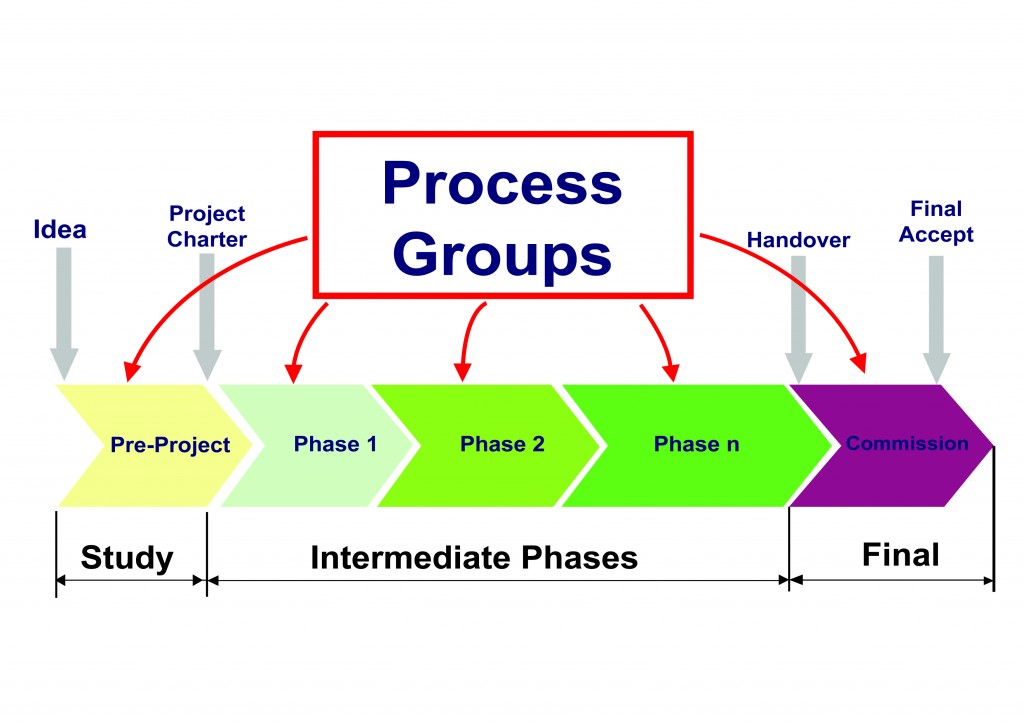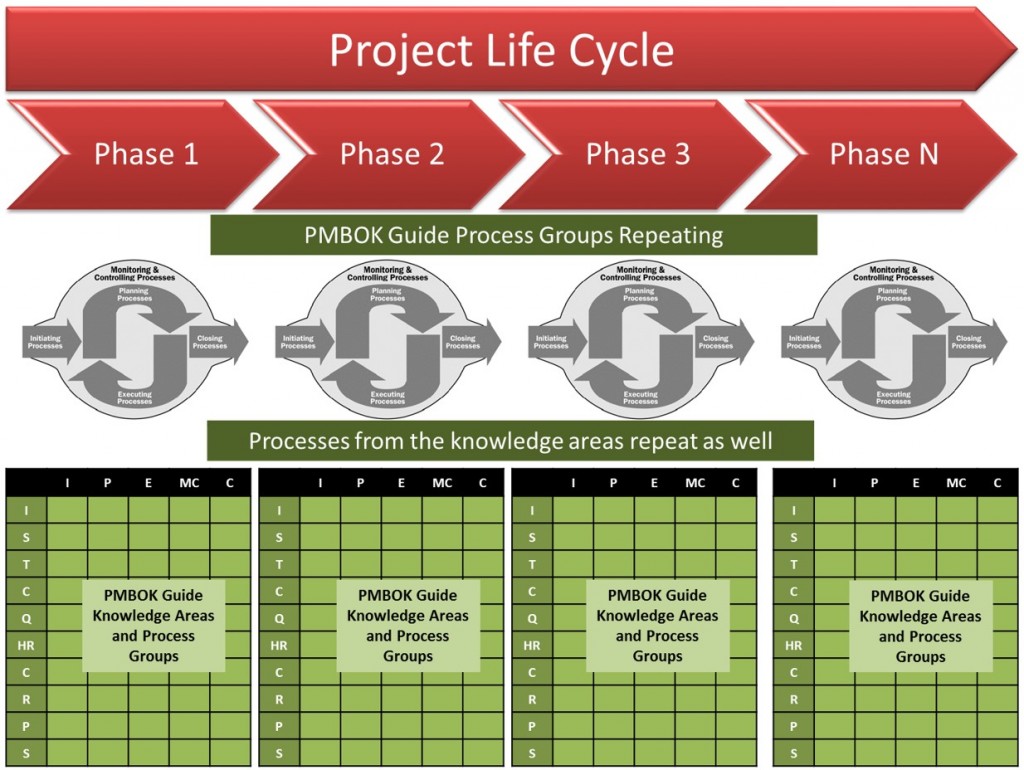Since we have published the last article on the PMBOK® Guide we are receiving feedback. The challenge is that feedback is coming on different online groups so it is hard to address for all. Therefore, we decided to use this follow-up post to address some of the feedback; without naming the people commenting.
Point 1
The first comment from a reader “I believe you are incorrect on your assessment that the project management process groups are synonymous with project phases”
We never said that the process groups and project phases are synonymous. What we said is that some practitioners treat them that way. Our view is that they are different.
Point 2
Another comment “In fact the PMBOK® Guide is quite clear that the processes are applied as needed through progressive elaboration.”
We ask the readers to take a look at page 43 of the 5th edition of the guide! Figure 2-11 and 2-12. These images show the process groups repeating …
I would agree not all 47 processes might apply in every phase but most of them will.
We would have liked for this reader to explain to us how progressive elaboration works in terms of processes? The way he stated it lead me to understand (maybe I misunderstood) is that you apply some processes in one phase and other processes in other phases and therefore the 47 processes are spread around the project and each is applied only once?
Progressive elaboration is about the repetitive processes. Like scope – in one phase scope could be high level in the next phase we elaborate and expand the scope definition and in the third phase we expand further. Same thing for schedule, quality, and all knowledge areas.
For example, we want to implement an IT infrastructure for a large organization in multiple offices. The early phase we might guess – or perform a high level estimate on the number of people required, types of equipment, rough cost, rough schedule … etc. In the next phase with preliminary analysis done – we expand on all of the above. In the design phase we expand further but now we might have accurate quantities, number of people, better estimate and detailed schedule … this is progressive elaboration … at least the way i understand it.
Point 3
The third comment was “You also talk about the charter really being for a given phase of the project and are thus a phase charter not a project charter.”
Again – this is not what I said.
The PMBOK says the charter is a part of initiating process group and the initiating process group repeat in every phase … what does that mean?
We said that there is a PROJECT charter (for the whole project) but every PHASE must also have an authorization document = charter.
Point 4
Another reader said
“Mounir Ajam states at the end of the article – “If I ask you to name the project phases what would you say? Some – if not many – will say Initiating, Planning, Executing, Closing! If you just said that – that means you are confusing the project phases with the names of the process groups”
“In my view, IPEC is a perfectly legitimate description of a project lifecycle. And I don’t consider that I’m ‘confused’! I know from other discussions and contributors that there are many who believe that e.g. ‘planning’ is a process group rather than a phase … but I – and many others – disagree. It just goes to show that (a) there are contradictory opinions about what constitutes good PM, (b) there is no one right answer, (c) that PM is much more art than science, and (d) that these discussion groups will last forever …!”
Our response
- We had written an article in the past on why planning (process group) is not a phase.
- We also published other related articles ...
And here is more detailed answer
Maybe the above statement should have read “… that means you are PROBABLY confusing the project phases with the names of the process groups” since not everyone might be confused.
However, we typically say that many organizations uses IPEC (Initiating – Planning – Executing – Controlling) as names for their phases but the questions remain:
- Are they considering the initiating phase as something different from the initiating processes?
- Are they considering the planning phase as something different from the planning processes?
- same question for other process groups …
Because if they are not separating them, then there is a gap in practice … unless … they work on very small projects, where one can treat the whole project as a single phase.
The reasons are –
Let us say an organization has an initiating phase … this phase include using
- the initiating processes to initiate THE PHASE,
- the planning processes to plan the PHASE;
- executing processes to execute the PHASE,
- controlling processes to control the PHASE; and
- the closing processes to close the PHASE.
The same repeat for all other phases.
So by using the same terms to mean two different things – it creates confusion.
Another way to look at this – by using IPEC for names of phases now we will have:
- Initiating phase that happens once on the project life cycle and initiating processes that repeat for every phase
- Planing phase that happens once on the project life cycle and planning processes that repeat for every phase
- … and so on
Closing Remarks
The following image shows that the process groups repeat in every phase – this is adapted from the PMBOK.
We welcome more debate on this topic …
We do realize that by touching the PMBOK Guide we are touching many people – some possibly miss-understand parts of the guide. Whereas others might have special and unique project scenarios where the guide might be too much for them and they only need to apply parts of it. This might be perfectly acceptable in certain scenarios but not in others.
This last image also shows the project life span – subdivided into phases – and in every phase the process groups and processes (most of them) repeat.


